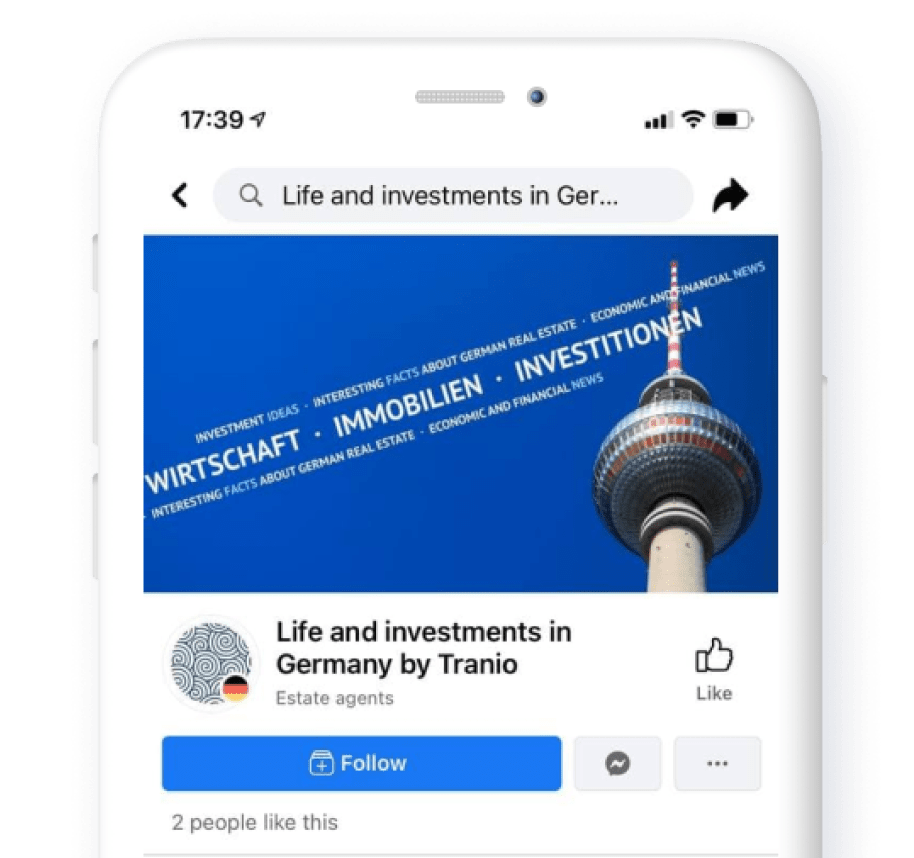Business immigration to Germany

Business immigration to Germany is supported by the German government’s programme that allows investors and entrepreneurs to obtain a residence permit and find new business opportunities in the country.
It is not difficult to register a company in Germany. The main prerequisites for getting a residence permit are tax clearance and steady income for several years.
Germany’s business immigration law was changed in 2012 to loosen up the requirements for foreign investors seeking residence: now there are no limits on the number of new jobs to create or the amount of the initial investment.
Basic business profile for purpose of residence permit in Germany
- The underlying business plan must be of economic interest for the target region or state in Germany.
- The business plan must pass a review by the regional Chamber of Commerce in Germany.
- The businessman must have sufficient equity capital or loan commitments to finance and sustain business.
- The entrepreneur must prove professionalism and personal qualities that guarantee success of the business idea.
The most common ways for business immigration to Germany
- Relocation of the existing business to Germany or incorporation of a subsidiary,
- Incorporation of a new company in Germany to expand the existing business,
- Start up of a new business line and incorporation of an independent entity in Germany,
- Acquisition of stock in a German company or acquisition of a registered business in the country ready for immediate use.
Procedure of business immigration to Germany
Application approval
At the first stage, the applicant must submit a detailed business plan to the local authorities for review. The future immigrant will have to convince the local authorities that the proposed business will benefit the region.
The business plan should specify the following:
- The name of the company. The name must not infringe others’ copyright or repeat the existing names. The name can be verified on the official website of the German Patent and Trade Mark Office (Deutsches Patent- und Markenamt) or in the federal German Commercial Register (Handelsregister);
- The aims and objectives, legal form of the business, amount of investments;
- Particular steps for business development;
- Anticipated revenue, profit & loss, expected financial standing;
- Market research and competitor analysis;
- Competitive advantage;
- Experience, qualifications, and business acumen of the project participants;
- Headcount, payroll, and working conditions;
- Marketing strategy;
- Sources of financing;
- Justification of your project’s favourable impact on innovations and research (if applicable).
The business plan must be written in good German without grammar mistakes. An opinion assessing the feasibility of the proposed business plan from an international audit company would secure a serious advantage.
Choosing legal form for business
- Sole proprietorship (Einzelunternehmen) that comprises the self-employed (Selbstständige), freelancers and independent professionals (Freiberufler), and trade persons and businesses (Gewerbe).
- An entrepreneurial company with limited liability (Unternehmergesellschaft or UG), as a simplified alternative to a German limited liability company (Gesellschaft mit beschränkter Haftung or GmbH), commonly known as a “mini-GmbH” with a registered share capital from €1 to €25,000. A UG must contribute at least 25% of its annual net profit to the reserves until it reaches a minimum share capital of €25,000, at which point the UG may convert to a GmbH. It is more difficult for a UG to open a bank account or get a tax number.
- A German limited liability company (Gesellschaft mit beschränkter Haftung or GmbH) with a share capital of €25,000. A GmbH must be founded by Articles of Association, and its director may be a non-resident.
- A public limited company (Aktiengesellschaft or AG) with a start-up share capital of €50,000, of which €12,500 must be paid upon registration. The number of shareholders is not limited. The Board of an AG may be presided by a non-resident.
Important note: A registered address should be specified in the constituent documents to have a business registered in Germany. The businessman may rent a permanent office or registered address in Germany or rent a fully equipped office for a few hours or a day/days (approximately €150 a month).
Choosing visa category
A business visa may be short-stay (C) or long-stay (D) depending on the purpose of the trip. The “C” business visa allows residents to stay in the countries of the Schengen area for up to 90 days during six months. This visa is to be obtained to make short trips to Germany to sign documents, hold negotiations, open a bank account, pay up the share capital, or obtain your business’s number in the German Commercial Register (Handelsregister).
The application and documents for a business visa should be submitted to a German visa centre. The applicant should produce an invitation (Einladung) from partners in Germany, documents proving registration of business, bank account statement, excerpt from section B of the Commercial Register (Handelsregister B) not older than six months, and a standard set of documents for a Schengen visa.
The “D” business visa is usually issued in order to carry out full-fledged business, get a residence permit, and then citizenship in Germany in the future. This is a national visa issued for a validity period of three to six months that may be extended at the Federal Foreigners Office (Auswärtiges Amt) of Germany. The extension is granted first for one year and then for another three years if the applicant’s business is successful. A D visa application is processed for eight to twelve weeks, and the fee for this visa type is €75.
Documents for long-stay (D) visa application
- Two applications for the national (D) visa in German;
- Three biometric 35х45 mm photographs;
- A foreign passport and two copies of the pages containing personal data;
- A national passport of the applicant’s home country and two copies of all the pages containing records;
- CV in German written as a chronological timeline chart that should be continuous/without any time periods missing (with two copies);
- Certificate of Incorporation (Gründungsurkunde) (in original and two copies), notarised;
- Articles of Incorporation (Gesellschaftsvertrag) (in original and two copies), notarised;
- A certified register of members / shareholders (Gesellschafterliste) (with two copies);
- The employment agreement with the business executive (Geschäftsführervertrag) (if applicable) (with two copies);
- An excerpt from the Commercial Register (Handelsregisterauszug) (with two copies);
- A business plan in German (with two copies);
- Proof of sufficient knowledge of German — a certificate from a language school;
- A health insurance certificate (with two copies);
- Proof of financing secured by equity capital or loan commitments;
- Proof of financial provision for the old age out of pension, assets, investments, or other sources generating at least €159,823 for the applicants over 45 years old, pension insurance for twelve years for the applicants over 67 years old.
All the foreign-language documents must be translated into German. Translations made outside of Germany must be notarised. A translation made by a certified (sworn) translator in Germany need not be notarised.
Steps for a newly-arrived immigrant in Germany
A newly-arrived business immigrant must register the new place of residence in the local residents’ registration office, obtain a German tax number (Steuernummer), an EU VAT number (Ust-Identnummer), and an employer’s identification number for social insurance contributions (Betriebsnummer), which formalities will take approximately a month to complete.
After the business undergoes registration and operates for 18–24 months, the businessperson may apply for a residence permit(-s) for the entrepreneur and family (if applicable).
An important condition for extension of a residence permit issued on business grounds in German is provision of accounting statements for a year.
Doing business in Germany
Taxes in Germany
The tax rates applicable to both individuals and entities in Germany are one of the highest in Europe. The corporate income tax in Germany is levied at 15% on the entity’s taxable income. There is also an obligation to pay a trade tax at the standard rate of 3.5% multiplied by an additional tax of the municipality that depends on the place of residence and registered address. The effective corporate tax rate differs by the federal state going up from the standard rate of 3.5% to 16.1% in Frankfurt am Main and 17.15% in Munich. The VAT rate in Germany is 19%. There is also a solidarity surcharge imposed at 5.5% of the income tax rate. The overall tax burden might peak out to 50% of profits or more.
Small entities whose yearly turnover does not exceed €17,500 in the reporting year and is not to exceed €50,000 in the current year are VAT-exempt.
State subsidies
One of the key advantages of business immigration to Germany is entitlement of eligible businesses to state subsidies. There are several hundreds of specialised state programmes supporting small and medium-sized businesses in Germany.
State subsidies may cover from 25% to 50% of the invested amount depending on how attractive the business project is for the German economy. The amount of the subsidy depends on the project objectives, size of the company, headcount, and the federal state for implementation. No subsidies are granted to alcohol and tobacco companies.
Forms of state financial support: Non-repayable subsidies (Nicht rückzahlbarer Zuschuss), loans at minimum lending rates, partial reimbursement of the loan repayment costs (Beteiligungen), guarantees (Bürgschaften).
A non-repayable subsidy is granted to a profit-making company that commits to make the same products for another five years after the subsidy is channelled.
A subsidy applicant should select a state programme appropriate for the company’s line. The most popular programmes are:
- Central Innovation Programme for small and medium-sized enterprises (Zentrales Innovationsprogramm Mittelstand);
- Support of innovation assistants (Innovationsassistent/-in);
- Improvement of Regional Economic Structure (Verbesserung der regionalen Wirtschaftsstruktur)
Business immigration and pension insurance
Entrepreneurs under 45 years old may make pension decisions on their own either by obtaining pension insurance or earning a provision for the old age.
Entrepreneurs at the age of 45–55 years must enter into a pension agreement with a private insurance company or a pension fund.
Investors at the age of 55–67 years applying for a residence permit must prove their financial independence keeping at least €100,000–150,000 cash in the bank.
Pros and cons of business immigration to Germany
Pros
- A residence permit(-s) in Germany for the businessperson and family (if applicable);
- Ample business development opportunities in Germany;
- A rule-of-law state to do business in with no corruption or illegal takeovers;
- State subsidies and grants for innovation technologies, development of regions, ecotechnologies;
- Long-term loans at low rates for clients with impeccable background (1.1% per annum);
- Mature infrastructure, strong purchasing power of the population;
- Reduced VAT rates on agricultural producers, hospitality providers;
- Possibility to open branches outside of Germany.
Cons
- Competitive environment;
- High taxes (over 50% on profits);
- Obligatory German language knowledge;
- High and regular income of €4,000–5,000 a month per a person or €100,000 a year per a family;
- Potential challenges in doing business in a foreign country;
- Laws of a different type.
Tranio offers professional support to help you overcome the challenges of business immigration to Germany. Our associates would help acquire a registered business ready for use or a share in a German entity.
We will send you a content digest not more than once a week
